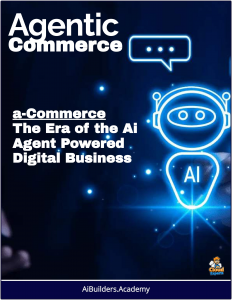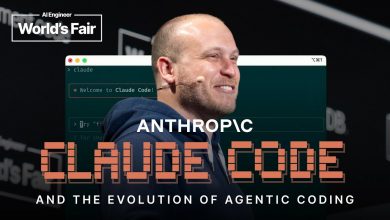Introducing the Future of Agentic Commerce—Powered by PayPal
The PayPal Agentic Toolkit is a developer-centric solution designed to simplify the integration of PayPal’s extensive API suite into AI agent frameworks.
 PayPal is at the forefront of a transformative shift in digital commerce, pioneering the concept of Agentic Commerce through its innovative Agentic Toolkit, Model Context Protocol (MCP) servers, and agentic-ready APIs and services.
PayPal is at the forefront of a transformative shift in digital commerce, pioneering the concept of Agentic Commerce through its innovative Agentic Toolkit, Model Context Protocol (MCP) servers, and agentic-ready APIs and services.
This approach leverages AI-powered agents to autonomously manage transactions, streamline workflows, and deliver personalized customer experiences, redefining how businesses and consumers interact in an intent-driven, autonomous economy.
By building an infrastructure tailored for the next generation of AI-driven applications, PayPal is positioning itself as a leader in creating seamless, intelligent, and secure commerce ecosystems.
PayPal Agentic Toolkit
The PayPal Agentic Toolkit is a developer-centric solution designed to simplify the integration of PayPal’s extensive API suite into AI agent frameworks, enabling the creation of sophisticated, autonomous commerce workflows.
This toolkit supports a wide range of functions, including payments, invoicing, dispute resolution, shipment tracking, catalog management, subscriptions, and analytics, eliminating the need for developers to grapple with complex API calls or data formatting. Compatible with popular AI frameworks like OpenAI’s Agents SDK, Vercel’s AI SDK, LangChain, CrewAI, and the Model Context Protocol, the toolkit—currently available in TypeScript with Python support planned—empowers developers to build extensible, multi-step workflows.
For instance, an AI agent can interpret a natural language prompt to create an order, authenticate a buyer, process a payment, and track a shipment, all within a single conversational interface.
This reduces development complexity, accelerates time-to-market, and enables scalable solutions for use cases like intelligent invoice handling, subscription management, and order processing, ultimately enhancing efficiency for merchants and customers alike.
Model Context Protocol
Central to PayPal’s agentic commerce strategy is its adoption of the Model Context Protocol (MCP), an open standard developed by Anthropic that standardizes how AI agents interact with third-party services and data sources.
PayPal’s MCP servers, available in both local and cloud-based configurations, provide developers with flexible and scalable infrastructure. The local MCP server allows for customized, on-premise deployments, supporting clients like Claude Desktop and Cursor AI, while the remote MCP server, accessible via a simple PayPal login, ensures task continuity across devices without requiring local installation.
These servers act as a bridge between AI agents and PayPal’s services, enabling conversational execution of tasks like invoice generation or payment processing. For example, a merchant can prompt an AI system with a request like “Create a PayPal invoice for $450 with 8% tax and a 5% discount,” and the MCP server handles the underlying API calls seamlessly.
With robust security measures like OAuth-based authentication and a focus on scalability, PayPal’s MCP servers reduce development time and errors, though concerns about server spoofing and token vulnerabilities underscore the need for rigorous security practices.
Open Platform
PayPal’s agentic-ready APIs and services form the backbone of its Open Platform, designed to power autonomous, intent-driven applications that anticipate and fulfil user needs with minimal human intervention.
These APIs cover critical commerce functions, such as order management, subscription setups, invoice creation, product browsing, shipment tracking, dispute resolution, and analytics, enabling AI agents to execute complex workflows conversationally. For instance, an AI agent can interpret a user’s request like “Buy a $50 gift card” and autonomously handle the entire transaction process.
By supporting natural language integration, personalization, and contextualization, these APIs enhance customer engagement through tailored recommendations and dynamic pricing, while their robust design ensures reliability and observability for developers. PayPal’s partnerships with AI leaders like AWS, Anthropic, Google Cloud, and Microsoft further amplify the versatility of these APIs, as demonstrated at PayPal’s Dev Days 2025, where integrations with Google Cloud powered AI shopping companions and AWS enabled AI-driven storefronts.
These advancements position PayPal ahead of competitors like Visa and Mastercard, as evidenced by industry recognition, such as the Best API Award at POST/CON 2025.
AI Agent Financial Operating System
PayPal’s broader vision is to create a Financial Operating System for AI agents, integrating programmable wallets (like the PYUSD stablecoin), digital identity, and real-time APIs to support autonomous transactions across its 430 million+ user network.
Leveraging data from its Honey acquisition, PayPal enhances AI-driven insights, further personalizing commerce experiences. Strategic initiatives, such as the April 2025 release of MCP servers and the Agentic Toolkit, the May 2025 partnership with Perplexity to enable conversational shopping, and ongoing developer engagement through events like Dev Days and POST/CON, underscore PayPal’s commitment to innovation.
However, challenges remain, including security risks like server spoofing, the need for interoperable standards across competing protocols, and ensuring compliance with regulatory frameworks. By addressing these hurdles and simplifying interfaces for non-developer users, PayPal is not only revolutionizing commerce but also setting a new standard for autonomous, AI-powered interactions.



